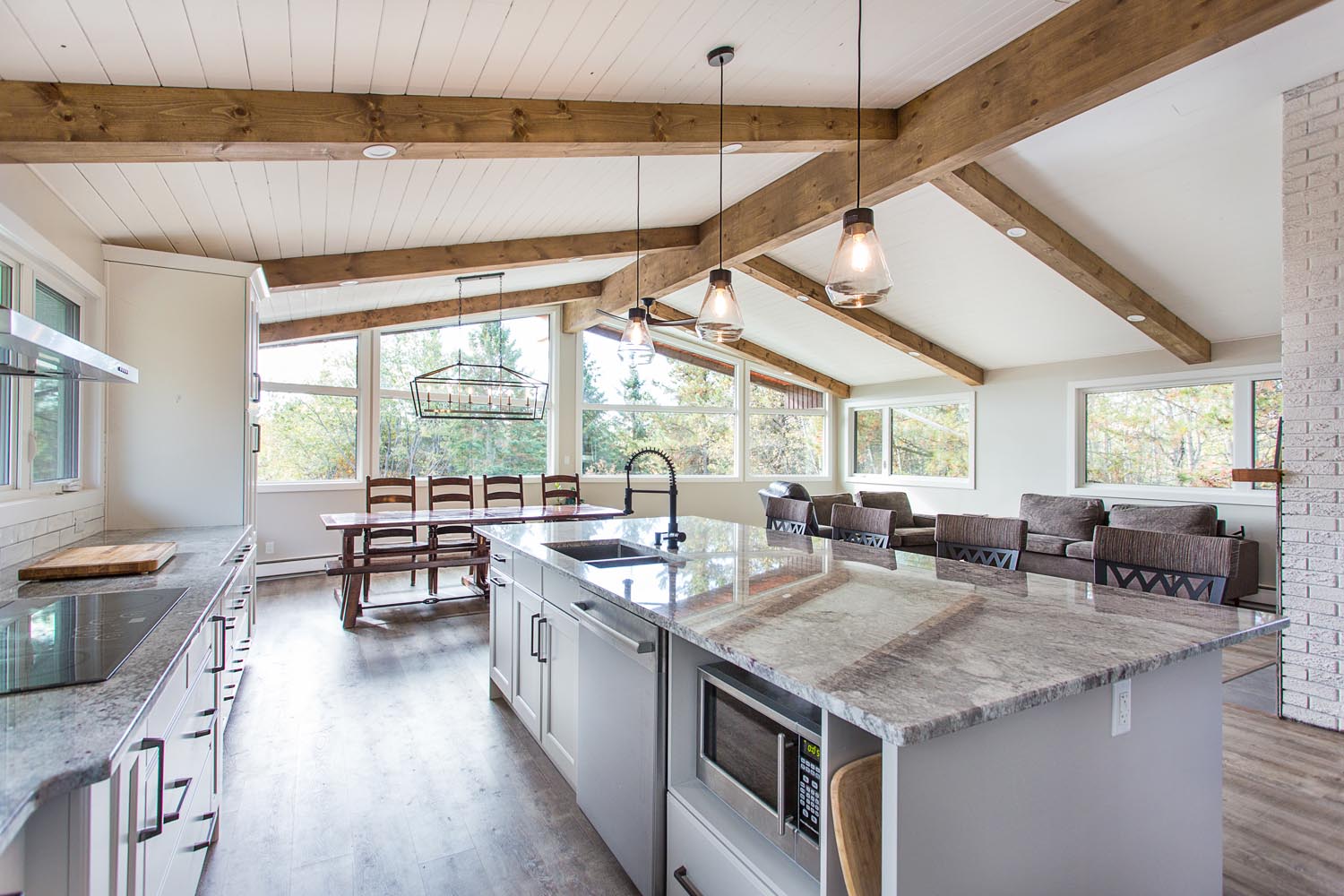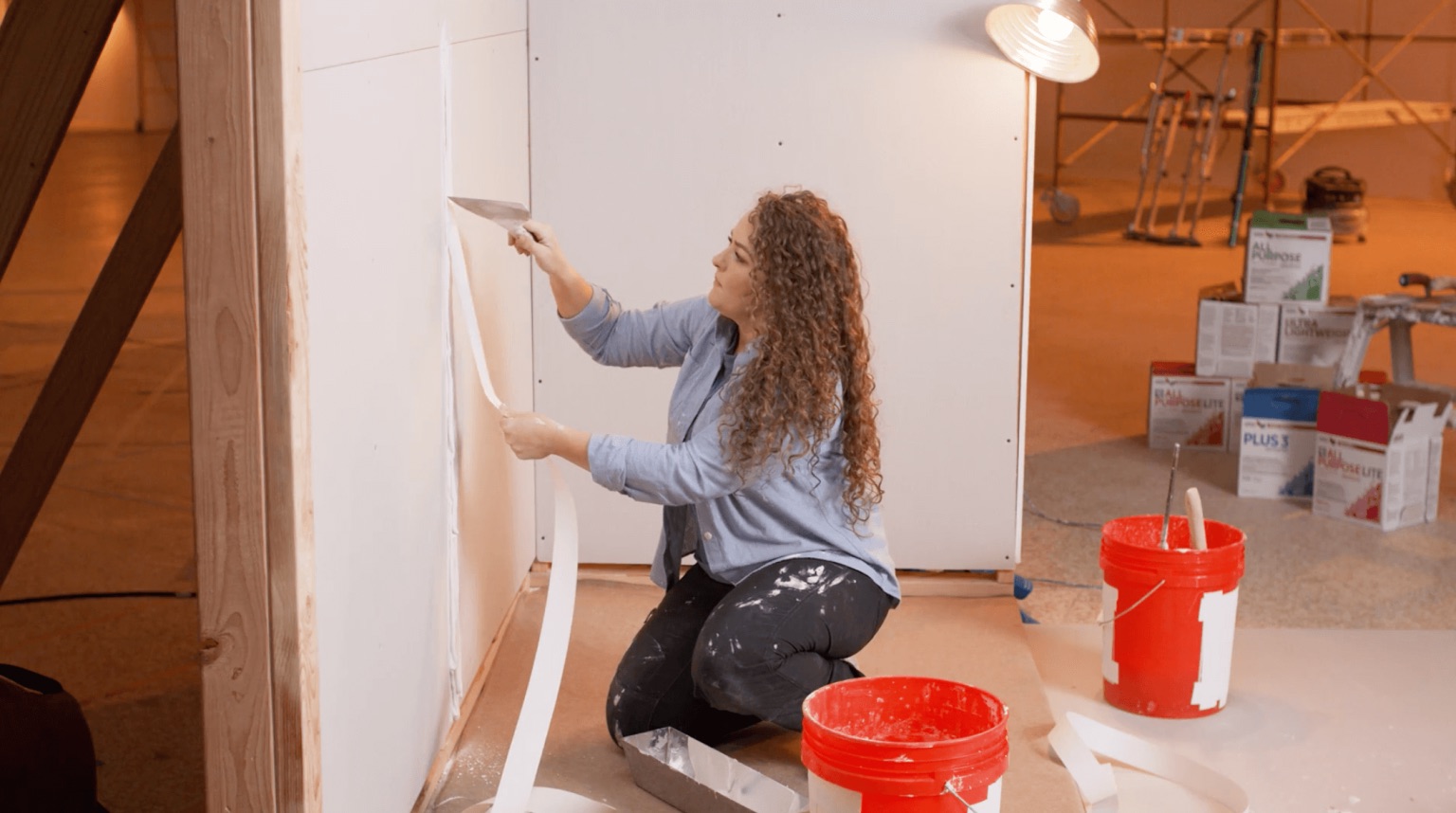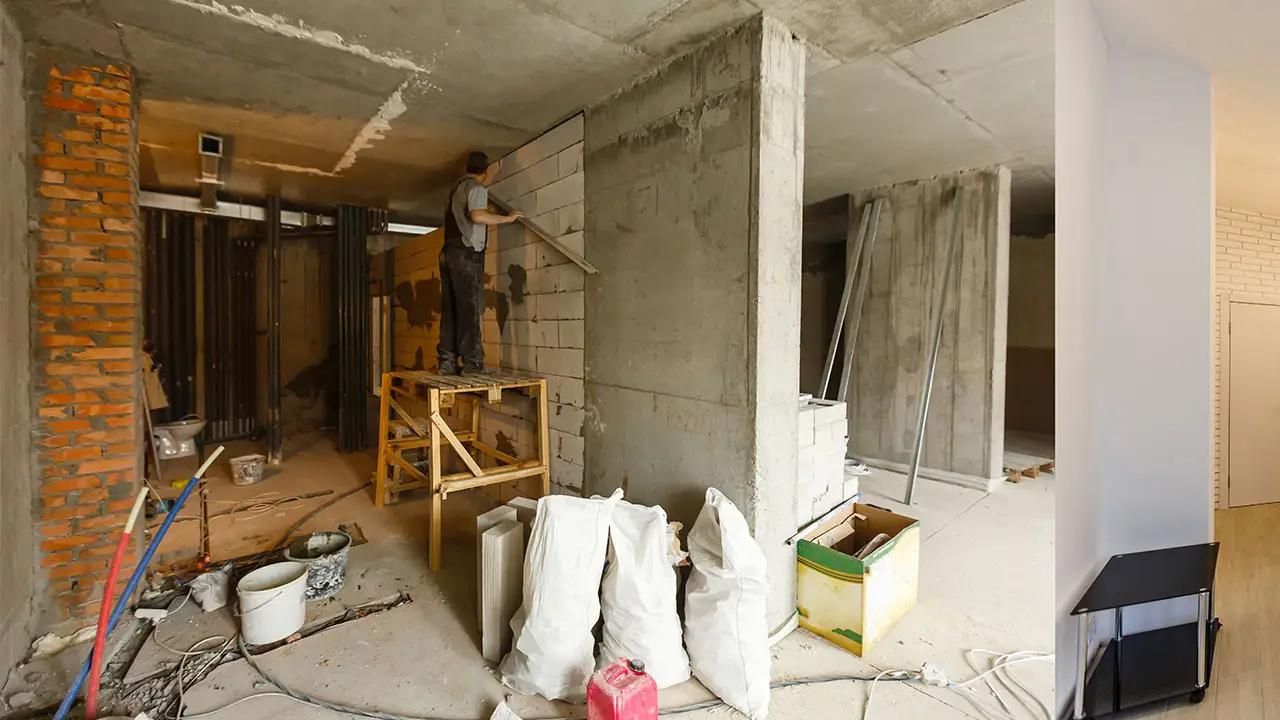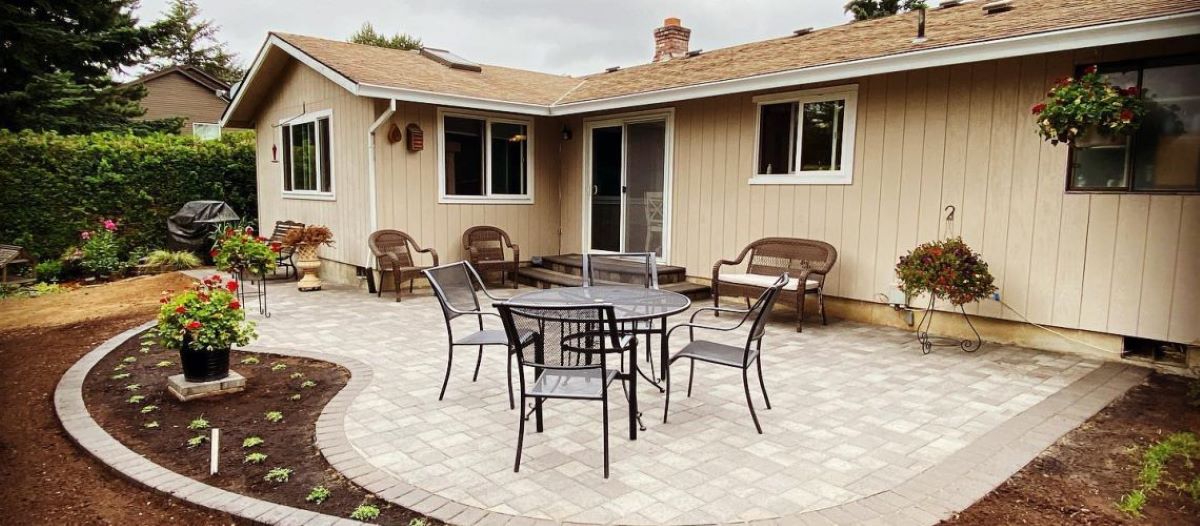Home>diy>Home Improvement>How To Finance The Renovation Of Your Home


Home Improvement
How To Finance The Renovation Of Your Home
Modified: January 9, 2024
Learn how to finance your home improvement project with our expert tips and advice. Discover the best loan options and budgeting strategies to renovate your home.
(Many of the links in this article redirect to a specific reviewed product. Your purchase of these products through affiliate links helps to generate commission for Storables.com, at no extra cost. Learn more)
Introduction
Embarking on a home renovation project is an exciting endeavor that can breathe new life into your living space. Whether you’re planning to remodel your kitchen, upgrade your bathroom, or add an extension to your home, the process can be both rewarding and challenging. One of the key factors to consider when planning your renovation is how to finance the project.
Assessing the financial aspect of your home renovation is crucial to ensure that you can complete the project within your budget while avoiding excessive debt. It’s essential to evaluate the scope of your renovation, set a realistic budget, and explore the various financing options available to you.
In this article, we will guide you through the process of financing your home renovation. We will provide valuable insights and tips to help you make informed decisions and select the financing option that best suits your needs and circumstances. So, let’s dive in and discover how to finance the renovation of your home.
Key Takeaways:
- Plan your home renovation budget by assessing the scope of the project, setting realistic financial limits, and exploring various financing options to avoid excessive debt and ensure a successful transformation.
- Choose the right financing option by evaluating your financial situation, considering total costs, interest rates, and repayment terms, and aligning with your financial goals to embark on your renovation journey with confidence and stability.
Read more: How To Finance Home Renovations
Assessing the Scope of Renovation
Before you can determine the most appropriate financing option for your home renovation project, it’s important to assess the scope of the renovation itself. This involves evaluating the extent of the changes you want to make and understanding the costs associated with each element.
Start by making a list of all the improvements and upgrades you wish to undertake. Consider both cosmetic changes, such as painting and flooring, as well as structural changes like adding rooms or expanding the living space. Prioritize the items on your list based on their importance and feasibility within your budget.
Next, estimate the costs associated with each item on your list. This will require thorough research, obtaining quotes from contractors, and considering the materials and labor required for each renovation task. Keep in mind that unexpected costs can arise during the renovation process, so it’s wise to include some contingency funds in your budget.
Consulting with experienced professionals, such as interior designers or contractors, can be beneficial in helping you assess the scope of your renovation project. They can offer valuable advice on the feasibility of your plans and help you determine a realistic budget. Additionally, they can suggest alternative solutions or cost-saving measures that can still achieve the desired outcome.
By carefully assessing the scope of your renovation, you can gain a clearer understanding of the financial implications involved. This will enable you to make informed decisions when exploring financing options and ensure that you have a realistic budget in place to support your home renovation project.
Setting a Budget
Setting a budget is a crucial step in the home renovation process. Without a clear understanding of your financial limitations, you may find yourself overspending or falling short of funds during the project. Here are some steps to help you set a realistic budget:
1. Determine your financial resources: Start by assessing your current financial situation. Take into account your savings, monthly income, and any other potential sources of funds, such as investments or loans. This will give you an idea of how much you can allocate towards your renovation.
2. Research costs: Research the current market rates for the renovation tasks you plan to undertake. This can include materials, labor, permits, and any other associated expenses. Obtain multiple quotes from contractors to compare prices and ensure you have a comprehensive understanding of the potential costs.
3. Prioritize your expenses: Once you have an understanding of the costs involved, prioritize your renovation tasks based on importance and necessity. Identify which elements are crucial for the functionality and aesthetics of your space, and allocate a larger portion of your budget to those items. If needed, consider postponing less critical tasks to a later date.
4. Factor in contingency: It’s essential to leave some room in your budget for unexpected expenses that may arise during the renovation process. Aim to set aside around 10%-20% of your total budget as a contingency fund. This will provide you with financial flexibility and peace of mind, should any unforeseen issues occur.
5. Be realistic: While it’s natural to desire the best possible outcome for your home renovation, it’s important to be realistic about what you can afford. Ensure that your budget aligns with your financial resources and avoid stretching yourself too thin financially. It’s better to scale back on certain elements or explore alternative solutions than to overextend yourself financially.
By setting a well-defined budget, you can effectively manage your finances throughout the renovation process. This will allow you to make informed decisions when selecting materials and contractors and help you stay on track with your financial goals.
Exploring Financing Options
Once you have assessed the scope of your renovation and set a budget, it’s time to explore the various financing options available to you. There are several avenues you can pursue to fund your home renovation project. Here are some common financing options worth considering:
1. Home Equity Loans: Home equity loans allow you to borrow against the equity you have built up in your home. These loans typically offer lower interest rates and longer repayment terms compared to other financing options. However, keep in mind that your home serves as collateral, so failure to repay the loan could result in the loss of your property.
2. Personal Loans: Personal loans are unsecured loans that you can use for various purposes, including home renovations. These loans don’t require collateral, but the interest rates may be higher compared to home equity loans. The advantage is that personal loans provide more flexibility in terms of the loan amount and repayment terms.
3. Credit Cards: Credit cards can be a convenient option for funding smaller renovation projects. However, keep in mind that credit card interest rates are typically higher, so it’s important to have a plan in place to pay off the balance quickly to avoid accumulating excessive debt.
4. Government Programs and Grants: Explore various government programs and grants that may offer financial assistance for home renovations. These programs are often targeted towards specific demographics, such as seniors or low-income individuals, and may have specific eligibility criteria.
5. Savings and Investments: If you have saved up a significant amount of money or have investments that you can liquidate, using your own savings is a straightforward and interest-free way to finance your home renovation. However, be mindful of depleting your savings entirely and maintain a buffer for unexpected expenses or emergencies.
6. Contractor Financing: Some contractors offer financing options to help homeowners fund their renovations. While convenient, be sure to carefully review the terms and interest rates before committing to contractor financing to ensure it aligns with your budget and financial goals.
It’s important to carefully evaluate each financing option based on your specific circumstances and financial goals. Consider factors such as interest rates, repayment terms, eligibility requirements, and the impact on your overall financial situation. Consulting with a financial advisor can also provide valuable insights to help you make an informed decision.
Home Equity Loans
One popular financing option for home renovations is a home equity loan. A home equity loan allows homeowners to borrow against the equity they have built up in their property. Here’s how it works:
What is Home Equity?
Home equity refers to the portion of your home’s value that you own outright, minus any outstanding mortgage balance. As you make mortgage payments over time, your equity increases, and you can potentially tap into that equity through a home equity loan.
Benefits of Home Equity Loans:
- Lower Interest Rates: Home equity loans often offer lower interest rates compared to other forms of financing, such as personal loans or credit cards. This is because the loan is secured by your home, reducing the risk for lenders.
- Fixed Interest Rates: Home equity loans typically come with fixed interest rates, meaning your monthly payments remain the same throughout the loan term. This can provide stability and predictability, making it easier to budget for your renovation expenses.
- Higher Loan Amounts: Depending on the value of your home and the amount of equity you have, home equity loans can provide access to larger loan amounts compared to other financing options. This can be especially beneficial for major renovations or additions.
- Tax Deductible Interest: In some cases, the interest paid on a home equity loan may be tax-deductible. Consult with a tax advisor or financial professional to understand the specific tax benefits that may apply in your situation.
Considerations and Risks:
- Collateral: When you take out a home equity loan, your home serves as collateral. This means that if you fail to repay the loan, the lender has the right to foreclose on your property. It’s crucial to assess your ability to make loan payments before taking out a home equity loan.
- Increased Debt: A home equity loan adds a new debt obligation to your financial portfolio. It’s essential to consider your overall debt load and ensure that you can comfortably manage the monthly loan payments without straining your finances.
- Closing Costs: Like traditional mortgages, home equity loans often come with closing costs, which can include appraisal fees, loan origination fees, and other expenses. Be sure to factor in these costs when determining the total loan amount needed.
Before applying for a home equity loan, it’s advisable to shop around and compare offers from different lenders. Consider factors such as interest rates, loan terms, fees, and repayment options. Consult with a mortgage professional who can guide you through the process and help you make an informed decision that aligns with your financial goals.
Read more: How To Finance Home Improvement
Personal Loans
Personal loans are another financing option to consider when funding your home renovation project. Unlike home equity loans, personal loans are unsecured, meaning they don’t require collateral. Here’s what you need to know about personal loans:
How Do Personal Loans Work?
Personal loans are installment loans that provide borrowers with a lump sum of money. The borrower then repays the loan over a predetermined period, typically in fixed monthly installments. Personal loans can be obtained from various financial institutions, such as banks, credit unions, or online lenders.
Benefits of Personal Loans:
- No Collateral Required: Since personal loans are unsecured, you don’t need to use your home or other assets as collateral. This can be advantageous if you don’t want to put your property at risk.
- Flexible Loan Amounts: With personal loans, you can typically borrow smaller to moderate loan amounts, depending on your creditworthiness and income. This makes personal loans suitable for smaller-scale renovation projects.
- Quick Funding: Personal loans often have a faster application and approval process compared to home equity loans or other forms of financing. This allows you to access funds quickly and start your renovation project promptly.
Considerations and Risks:
- Higher Interest Rates: Personal loans often come with higher interest rates compared to home equity loans. This is because there is no collateral securing the loan, making it riskier for lenders. It’s important to carefully consider the interest rate and calculate the total cost of borrowing when assessing your repayment capabilities.
- Creditworthiness: Personal loans heavily rely on your creditworthiness and credit history. Lenders will evaluate factors such as your credit score, income, and debt-to-income ratio when determining loan eligibility and interest rates. It’s beneficial to review your credit report and address any potential issues before applying for a personal loan.
- Loan Terms: Personal loans typically have shorter loan terms compared to home equity loans. While this means you can pay off the loan faster, it also results in higher monthly payments. Be sure to assess your financial capabilities and choose loan terms that align with your budget.
When exploring personal loan options, it’s important to compare offers from multiple lenders. Consider factors such as interest rates, repayment terms, fees, and any additional benefits or features offered by the lender. By carefully assessing your options, you can choose a personal loan that suits your needs and helps finance your home renovation project effectively.
Consider a home equity loan or line of credit to finance your renovation. These options typically offer lower interest rates and longer repayment terms than personal loans or credit cards.
Credit Cards
Credit cards can be a convenient and flexible financing option for smaller-scale home renovation projects. However, it’s important to understand the advantages and considerations associated with using credit cards for financing. Here’s what you need to know:
Convenience and Flexibility:
Using a credit card to fund your home renovation offers the convenience of immediate access to funds. With a credit card, you can easily make purchases for materials and services without the need for additional loan applications or approval processes.
Moreover, credit cards provide flexibility in terms of how much you spend. You can choose to charge all or part of your renovation expenses to your credit card, depending on your available credit limit.
Rewards and Benefits:
Credit cards often come with rewards programs that allow you to earn cashback, points, or travel miles on your purchases. This can be advantageous if you have a credit card that offers bonus rewards for home improvement or general spending categories.
Additionally, some credit cards provide additional benefits such as extended warranties, purchase protection, and zero-liability fraud protection. These features can offer added peace of mind when making large purchases for your home renovation.
Considerations and Risks:
Interest Rates and Repayment: Credit cards typically have higher interest rates compared to other financing options such as home equity loans or personal loans. If you are unable to pay off the balance in full each month, the interest charges can accumulate quickly, resulting in higher overall costs for your renovation project.
Credit Utilization and Credit Score: Charging a significant amount to your credit card can increase your credit utilization ratio, which is the percentage of your available credit that you are using. High credit card balances can negatively impact your credit score. It’s important to closely manage your credit utilization and make timely payments to avoid any adverse effects on your creditworthiness.
Budgeting and Discipline: It’s crucial to have a solid budget and financial discipline when using credit cards for renovations. Without proper planning, it’s easy to overspend or accumulate debt beyond what you can comfortably manage. Create a budget and track your spending to ensure you stay within your means.
Using credit cards for home renovations can be a suitable financing option, particularly for smaller projects. However, it’s important to carefully consider the interest rates, repayment terms, and your own financial discipline before proceeding. If you choose to use credit cards, aim to pay off the balance as soon as possible to minimize interest expenses and maintain a healthy credit profile.
Government Programs and Grants
If you’re looking for financial assistance to fund your home renovation, exploring government programs and grants can be a worthwhile option. Various government agencies offer programs specifically designed to support homeowners with their renovation endeavors. Here’s what you need to know about government programs and grants:
Types of Government Programs:
Government programs can vary depending on your location and specific eligibility criteria. Here are a few examples of common government programs and grants available for home renovations:
- Home Improvement Loans: Some government agencies offer low-interest loans specifically for home improvements. These loans often have favorable terms and may be targeted towards specific demographics, such as low-income homeowners or seniors.
- Energy-Efficient Renovation Programs: In an effort to promote energy efficiency, many governments have implemented programs that provide incentives and grants for homeowners who undertake energy-saving renovations. These programs may cover insulation, solar panels, or energy-efficient appliances.
- Disability and Accessibility Grants: For homeowners with disabilities, there are government grants and programs available to support modifications and improvements that enhance accessibility and independence. These grants can cover items like ramps, widened doorways, and bathroom modifications.
Research and Eligibility:
It’s essential to conduct thorough research to identify government programs and grants available in your area. Start by visiting the official government websites or contacting local housing authorities to inquire about available resources.
Each program will have its own eligibility requirements and application process. Some may require specific income levels, property types, or proof of need. Take the time to carefully review the eligibility criteria to determine if you qualify for any of the programs.
Application and Documentation:
Applying for government programs and grants typically involves completing an application form and providing supporting documents. These documents may include proof of income, property ownership, renovation plans, and other relevant information. Be sure to gather all the necessary documentation and submit your application within the specified deadlines.
Patience and Persistence:
Government programs and grants often have limited funding and can be highly competitive. It’s important to be patient and persistent during the application process. Understand that approval may take time, and there is no guarantee of receiving funding. However, by carefully following the guidelines and submitting a well-prepared application, you enhance your chances of securing the financial assistance you need.
Government programs and grants can be a valuable source of financial support for your home renovation project. Take the time to research and explore the options available to ensure that you maximize any opportunities for assistance. Contact local government agencies or consult with a housing counselor to get personalized guidance and support in navigating the application process.
Working with Contractors and Negotiating Quotes
Hiring the right contractor is crucial for the success of your home renovation project. It’s essential to find a reliable and skilled contractor who can bring your vision to life within your budget. Here are some tips for working with contractors and negotiating quotes:
Research and Seek Recommendations:
Start by conducting thorough research to find reputable contractors in your area. Seek recommendations from friends, family, neighbors, or local community groups who have recently completed similar renovation projects. Online platforms and review websites can also provide valuable insights and feedback from previous clients.
Request Multiple Quotes:
Obtain quotes from several contractors to compare their pricing, proposed timelines, and the scope of work. Provide each contractor with detailed information about your renovation plans to ensure accurate quotes. Be transparent about your budget to ensure the quotes align with your financial goals. Remember that the lowest price may not always be the best option – consider the contractor’s experience and reputation in addition to the quote.
Verify Credentials and Licenses:
Before finalizing a contractor, verify their credentials and licenses. A reputable contractor should have proper licensing, insurance, and certifications. Check if they are a member of professional organizations or industry associations, as these affiliations often indicate a commitment to quality and professionalism.
Ask for References and Portfolios:
Request references from previous clients and ask to see portfolios or examples of their past work. This will give you an idea of their style, attention to detail, and craftsmanship. Contact the references and ask about their overall experience, satisfaction with the contractor’s work, and adherence to budget and timeline.
Discuss Communication and Project Management:
Effective communication is essential for a successful renovation project. Discuss communication expectations with potential contractors, including how often you will receive updates, who will be the main point of contact, and how any concerns or changes will be addressed. Clarify project management aspects such as the presence of a project manager, subcontractors involved, and the timeline for completing different phases of the renovation.
Negotiate Contract Terms:
Once you have selected a contractor, review and negotiate the terms of the contract. Ensure that all aspects of the project are clearly outlined, including the scope of work, materials to be used, payment schedule, and estimated completion date. Be prepared to ask questions and make any necessary revisions before signing the agreement.
Written Agreements and Documentation:
It’s crucial to have a written contract that clearly defines the terms and responsibilities of both parties involved. This protects both the homeowner and the contractor throughout the renovation process. Keep records of all communication, written correspondence, and documentation related to the project for future reference.
By taking the time to research contractors, obtain multiple quotes, and negotiate contract terms, you can lay a solid foundation for a successful home renovation project. Building a positive working relationship with your contractor based on clear communication and mutual understanding will increase the chances of a smooth and satisfactory renovation experience.
Read more: How To Find Out When Your House Was Built
Choosing the Right Financing Option
Choosing the right financing option for your home renovation is crucial to ensure that you can fund your project effectively while maintaining your financial stability. Here are some factors to consider when selecting the right financing option:
Assess Your Financial Situation:
Start by evaluating your current financial situation. Consider your income, savings, and any existing debts. Determine how much you can comfortably allocate towards your renovation project without straining your finances. This will help you determine the realistic loan amount or financing option that you can afford.
Consider the Total Cost of Financing:
When comparing financing options, it’s important to consider the total cost of financing over the loan term. This includes the principal amount, interest rates, fees, and any other associated costs. Calculate the total amount you will repay with interest to determine the most cost-effective option for your budget.
Evaluate Interest Rates:
Interest rates significantly impact the overall cost of borrowing. Compare the interest rates offered by different lenders or financing options. Opt for the option with the lowest interest rate, as it will save you money in the long run. However, be cautious as some financing options with lower interest rates may have shorter repayment terms or higher fees.
Assess Repayment Terms:
Consider the repayment terms offered by various financing options. Longer repayment terms typically result in lower monthly payments but may incur higher interest costs over time. Shorter repayment terms may have higher monthly payments but can help you pay off the loan faster, saving on interest charges.
Understand Security and Collateral:
Different financing options require varying levels of collateral or security. For example, home equity loans are secured by your property, while personal loans are typically unsecured. Assess the level of risk you are comfortable with and the assets you are willing to use as collateral in order to choose the appropriate financing option.
Consider Your Financial Goals:
Align your financing option with your broader financial goals. For instance, if you plan to sell your home soon, opting for a shorter-term loan with higher monthly payments might be more suitable. If you prioritize liquidity and prefer to have more cash on hand, a longer-term loan with lower monthly payments could be a better choice.
Seek Professional Advice:
If you’re unsure about which financing option is best for you, consider consulting a financial advisor. They can offer personalized guidance based on your specific financial situation, goals, and risk tolerance. A financial professional can help you navigate the complexities of various financing options and provide insights to make an informed decision.
By carefully considering your financial circumstances, analyzing the total cost of financing, evaluating interest rates and repayment terms, and aligning the financing option with your goals, you can make an informed decision on choosing the right financing option for your home renovation project. Remember to read and understand all the terms and conditions of your chosen financing option before committing.
Conclusion
Financing a home renovation project requires careful consideration and planning to ensure it aligns with your budget and financial goals. By assessing the scope of the renovation, setting a realistic budget, and exploring the various financing options available, you can make informed decisions and embark on your project with confidence.
Assessing the scope of the renovation involves evaluating the extent of the changes you want to make and understanding the costs associated with each element. This step helps you prioritize tasks and allocate your budget accordingly.
Setting a budget is essential to ensure you have a clear understanding of your financial limitations. By determining your financial resources, researching costs, and factoring in contingencies, you can create a budget that supports your renovation project without risking excessive debt.
Exploring financing options allows you to choose the approach that best suits your needs and financial situation. Whether considering home equity loans, personal loans, credit cards, or government programs, understanding the potential advantages and considerations is key to making an informed decision.
Working with contractors and negotiating quotes plays a vital role in the success of your renovation project. Thorough research, obtaining multiple quotes, and verifying credentials help you select a reliable and skilled contractor who can bring your vision to life within your budget.
Choosing the right financing option involves assessing your financial situation, considering the total cost of financing, evaluating interest rates and repayment terms, and aligning with your financial goals. Seeking professional advice can provide further guidance in making the best decision for your specific circumstances.
In conclusion, financing your home renovation requires careful planning, research, and consideration of your financial circumstances. By assessing the scope, setting a budget, exploring financing options, working with contractors, and selecting the right financing option, you can embark on your renovation journey knowing you have made sound financial decisions. With proper financing in place, you can transform your home into the dream space you envision while maintaining your financial stability.
Frequently Asked Questions about How To Finance The Renovation Of Your Home
Was this page helpful?
At Storables.com, we guarantee accurate and reliable information. Our content, validated by Expert Board Contributors, is crafted following stringent Editorial Policies. We're committed to providing you with well-researched, expert-backed insights for all your informational needs.














0 thoughts on “How To Finance The Renovation Of Your Home”